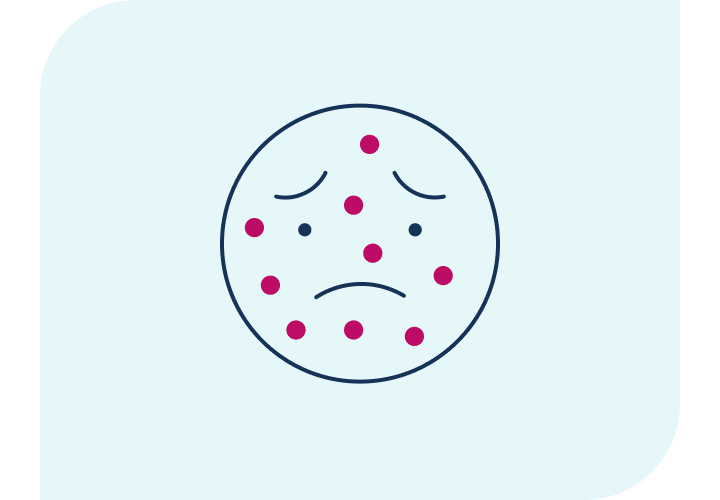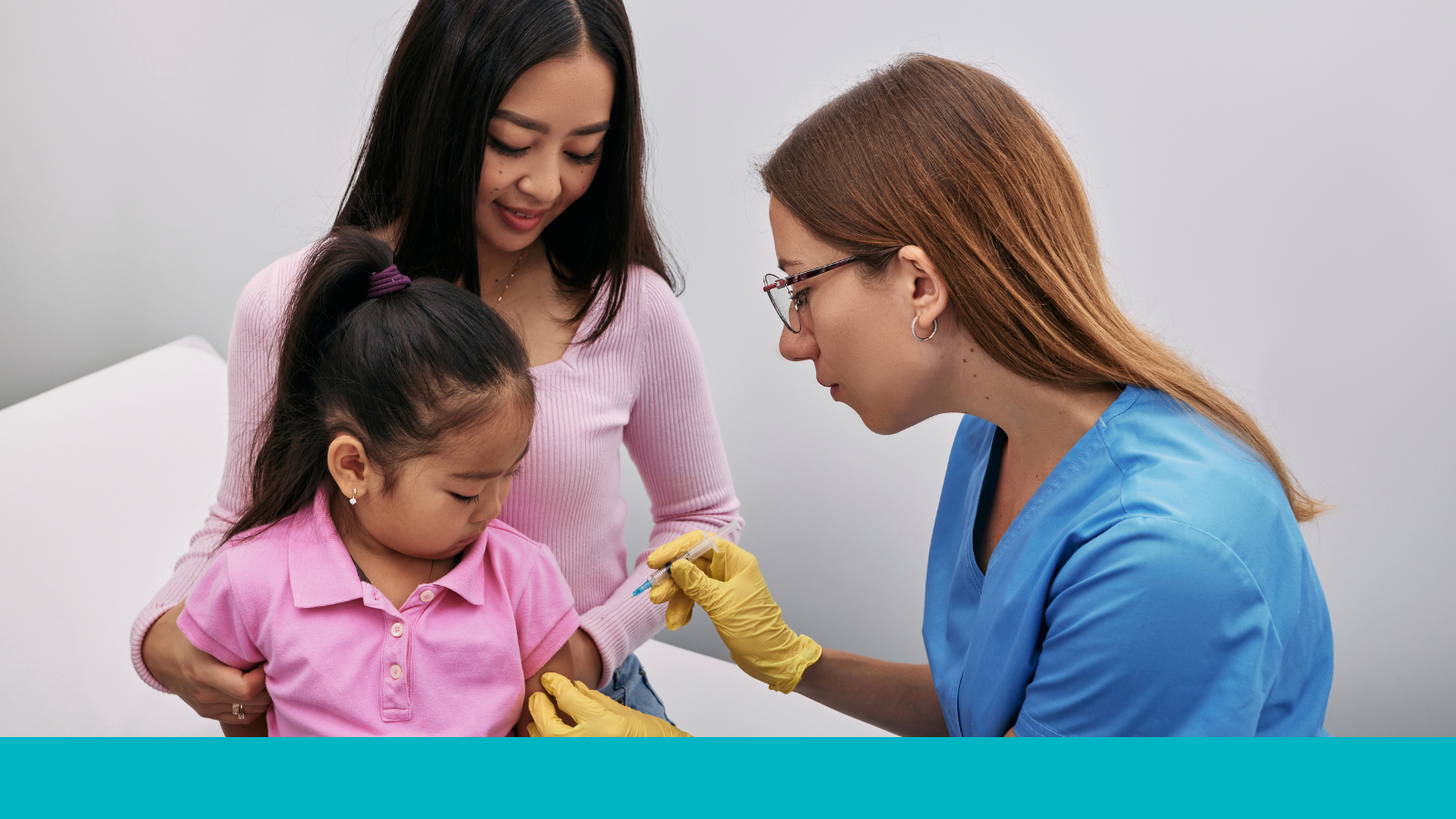What to Know about the 2025 Measles Outbreak
As of June 19, 2025, the Centers for Disease Control and Prevention (CDC) has confirmed 1,214 measles cases across 35 states and jurisdictions*. 95% of these cases were confirmed in people who were unvaccinated or did not know their vaccination status.
750 of these cases were confirmed in Texas, where there is an ongoing measles outbreak, and 81 were reported in New Mexico.
Additionally, on June 13, the Massachusetts Department of Health confirmed that an individual with measles recently visited Boston. On June 14, the DC Department of Health confirmed a case of measles in an international traveler who recently arrived in Washington, DC.
On May 28, the CDC updated its warning about contracting measles at travel hubs (like airports and train stations), on public transportation, and in other crowded spaces. The CDC now recommends that travelers postpone their trip if they are unable to get vaccinated before departing. The CDC also recommends that anyone traveling internationally get fully vaccinated against measles before their trip.
There have been three confirmed deaths associated with the measles outbreak: two children who tested positive for measles and were not vaccinated against the disease in Texas, and an unvaccinated adult in New Mexico who tested positive for measles after dying.
* Alaska, Arizona, Arkansas, California, Colorado, Florida, Georgia, Hawaii, Illinois, Indiana, Iowa, Kansas, Kentucky, Louisiana, Maryland, Michigan, Minnesota, Missouri, Montana, Nebraska, New Jersey, New Mexico, New York (including New York City), North Dakota, Ohio, Oklahoma, Pennsylvania, Rhode Island, South Dakota, Tennessee, Texas, Vermont, Virginia, Washington, as well as the District of Columbia.
- Measles is highly contagious. Children who are unvaccinated are particularly susceptible to measles and should avoid exposure. Per CDC data, one out of five children who contract measles will be hospitalized, and children who contract measles are at risk of pneumonia and death.
- If you have been exposed to someone with measles or display symptoms, like a rash that spreads from the face to the rest of the body, you should isolate and contact a healthcare provider immediately. If you are unvaccinated and may have been exposed to measles, you can receive the MMR vaccine up to 72 hours after exposure to help prevent or reduce the severity of an infection.
- Vaccination is the most effective way to avoid contracting measles and can also help limit its spread in communities. Within two to three weeks of receiving the recommended doses of the measles-mumps-rubella (MMR) vaccine, the immune system is ready to protect against measles. In rare cases, fully vaccinated people may contract measles, but their symptoms tend to be mild compared to those who are unvaccinated and contract measles.
- Vitamin A does not prevent measles. The only way to prevent measles is with the MMR vaccine.
- If you are located near a measles outbreak, you should get the MMR vaccine immediately, especially for children over 12 months and adults who are unvaccinated or unsure of their vaccination status.
- Babies under 12 months of age do not have mature enough immune systems to be vaccinated against measles, so it is important to vaccinate anyone who will be interacting with them.
Talking Points
What is Measles?
- Measles is a disease that infects the lungs and breathing passages like the nose, mouth, and throat, and spreads throughout the body.
- Anyone can contract measles, but it most commonly affects children. Certain groups are most at risk for serious measles complications, including:
- Children ages five and under
- Adults ages 20 and over
- Pregnant people
- People with immunocompromised health
- Measles symptoms can include coughing, high fevers, diarrhea, a runny nose, eye and ear infections, and a rash all over the body. Severe symptoms include hearing loss and death.
Measles Transmission
- Measles is highly contagious. Someone who is infected can spread the disease to other people before noticing any symptoms, especially in the four days before and after a rash develops.
- Data show that unvaccinated people have a 90% likelihood of contracting measles if exposed. Unvaccinated children who have not previously been infected are more likely to get infected.
Measles Vaccination and Prevention
- Vaccination is the most effective way to avoid contracting and spreading measles. Individuals with a history of prior infection or vaccination who have received the full series of measles-mumps-rubella (MMR) vaccines are 97% protected and are unlikely to contract measles. Since the start of 2025, 1,214 measles cases have been reported to the CDC, and 3% of those cases occurred in fully vaccinated people. In the rare case when a vaccinated person contracts measles, their symptoms tend to be less severe.
- Additionally, measles outbreaks typically occur in communities with high numbers of people who are unvaccinated. Vaccination can help reduce the spread of measles in communities and prevent infection in the small number of vaccinated people who do not have full immunity.
- It only takes a few days for antibodies to develop in response to the MMR vaccine. Within two to three weeks of vaccination, the immune system is ready to protect against measles.
- Vitamin A does not prevent measles. The only way to prevent measles is with the MMR vaccine. Taking high doses of vitamin A may be dangerous as it can lead to toxicity, which means it can become poisonous. High doses of vitamin A can lead to nausea, vomiting, headache, fatigue, joint and bone pain, blurry vision, skin/hair problems, liver damage, confusion, coma, and other complications.
- Taking vitamin A to care for a measles infection is only effective if the infected individual has a vitamin A deficiency, which is very uncommon in the United States.
Measles Treatment
- There is no treatment for measles, but you can take actions to feel better and prevent complications. If you or your child has measles or believe you have been exposed, isolate yourself away from others and contact a healthcare provider immediately.
- Hydration, rest, avoiding harsh light, and taking a fever reducer or pain reliever can also help relieve symptoms.





